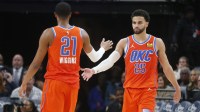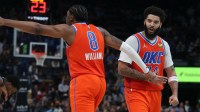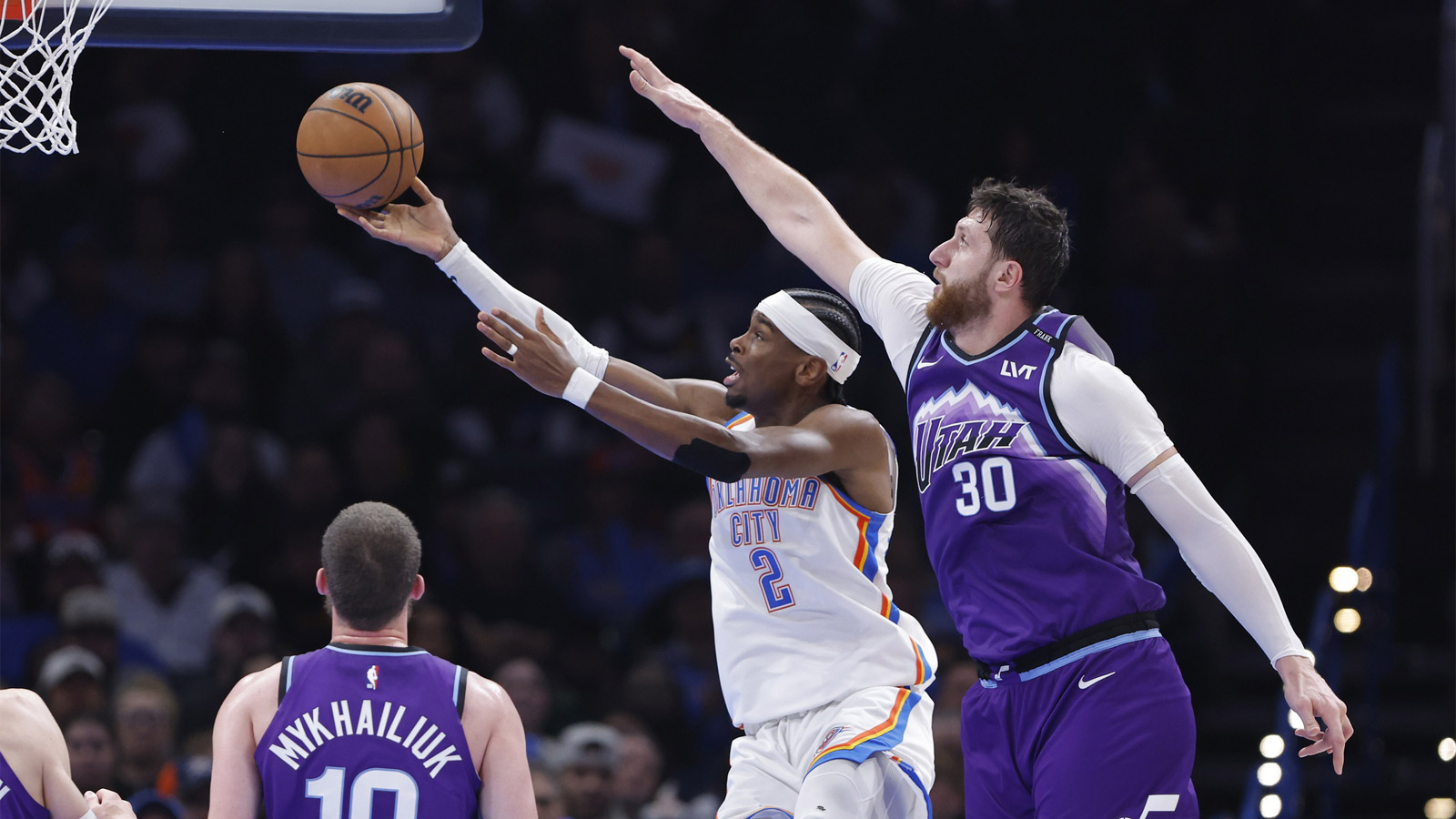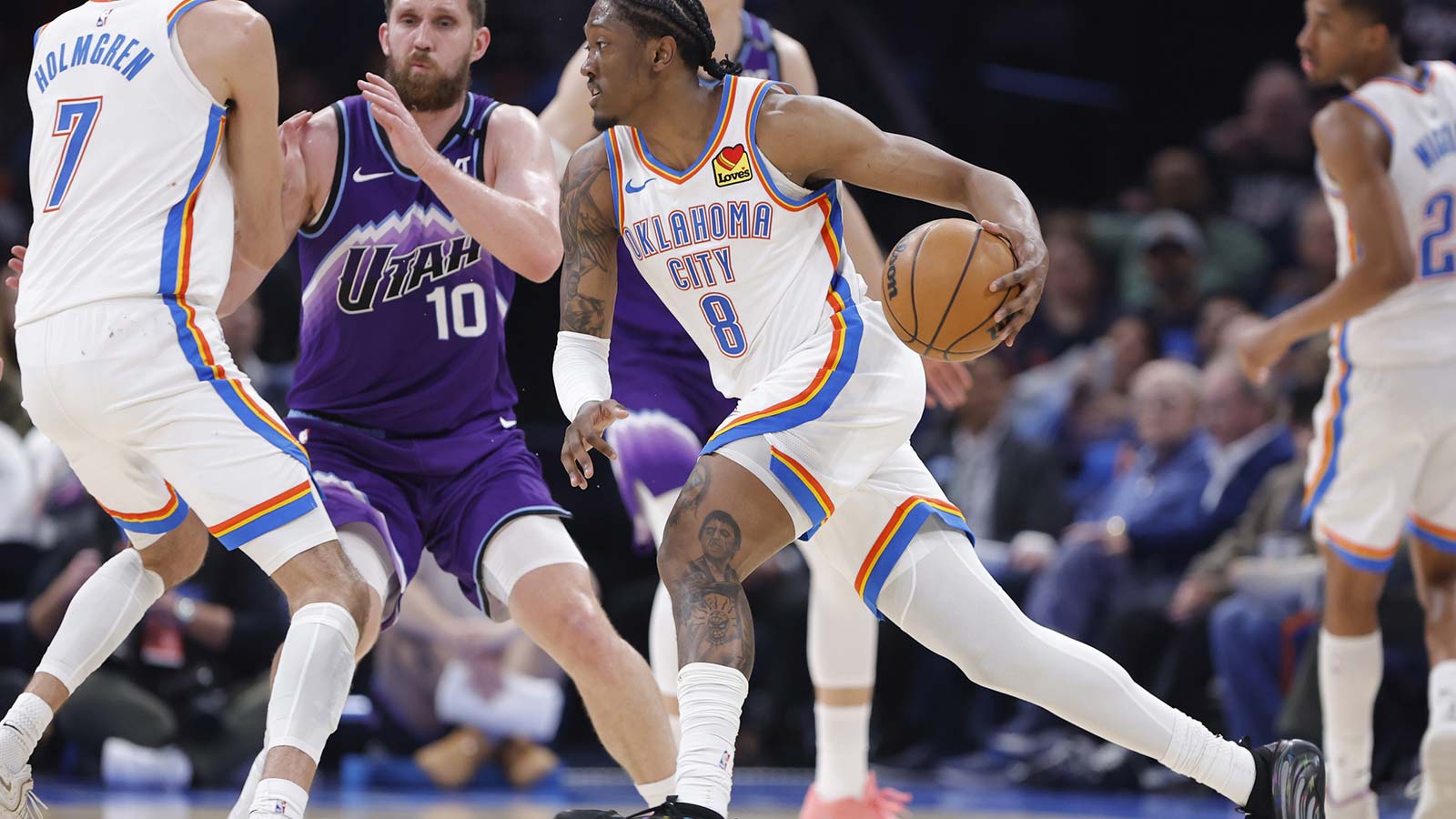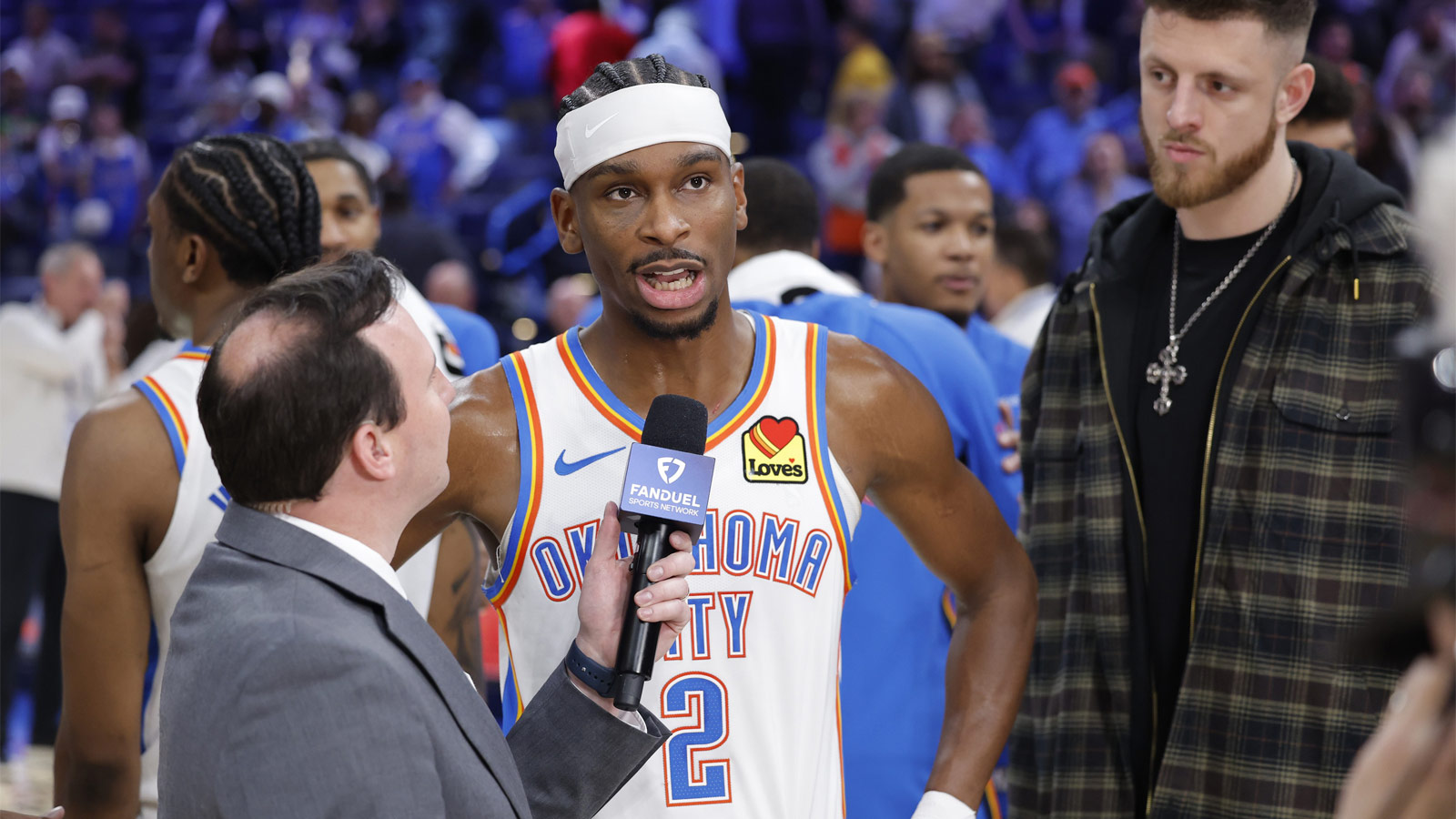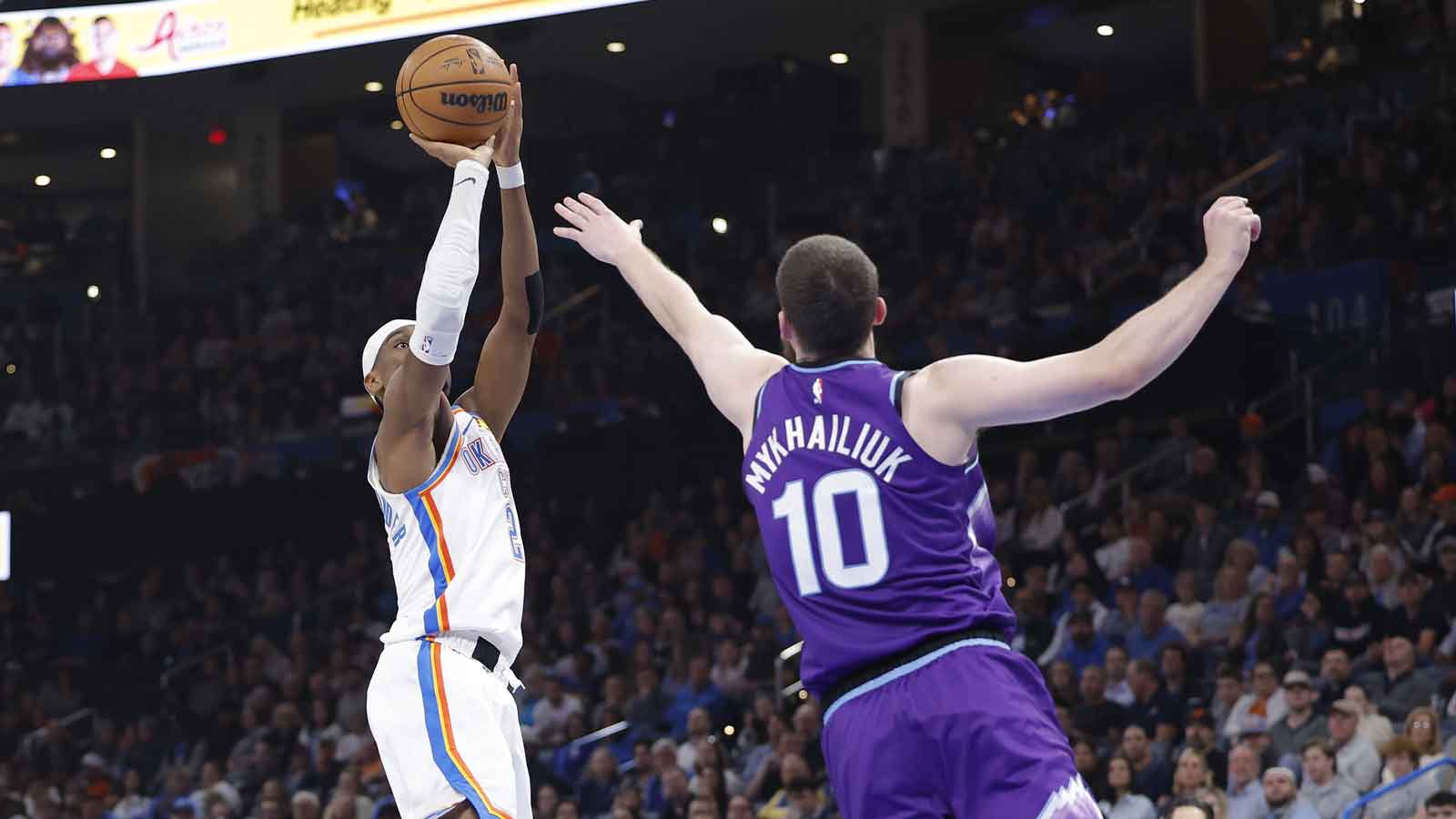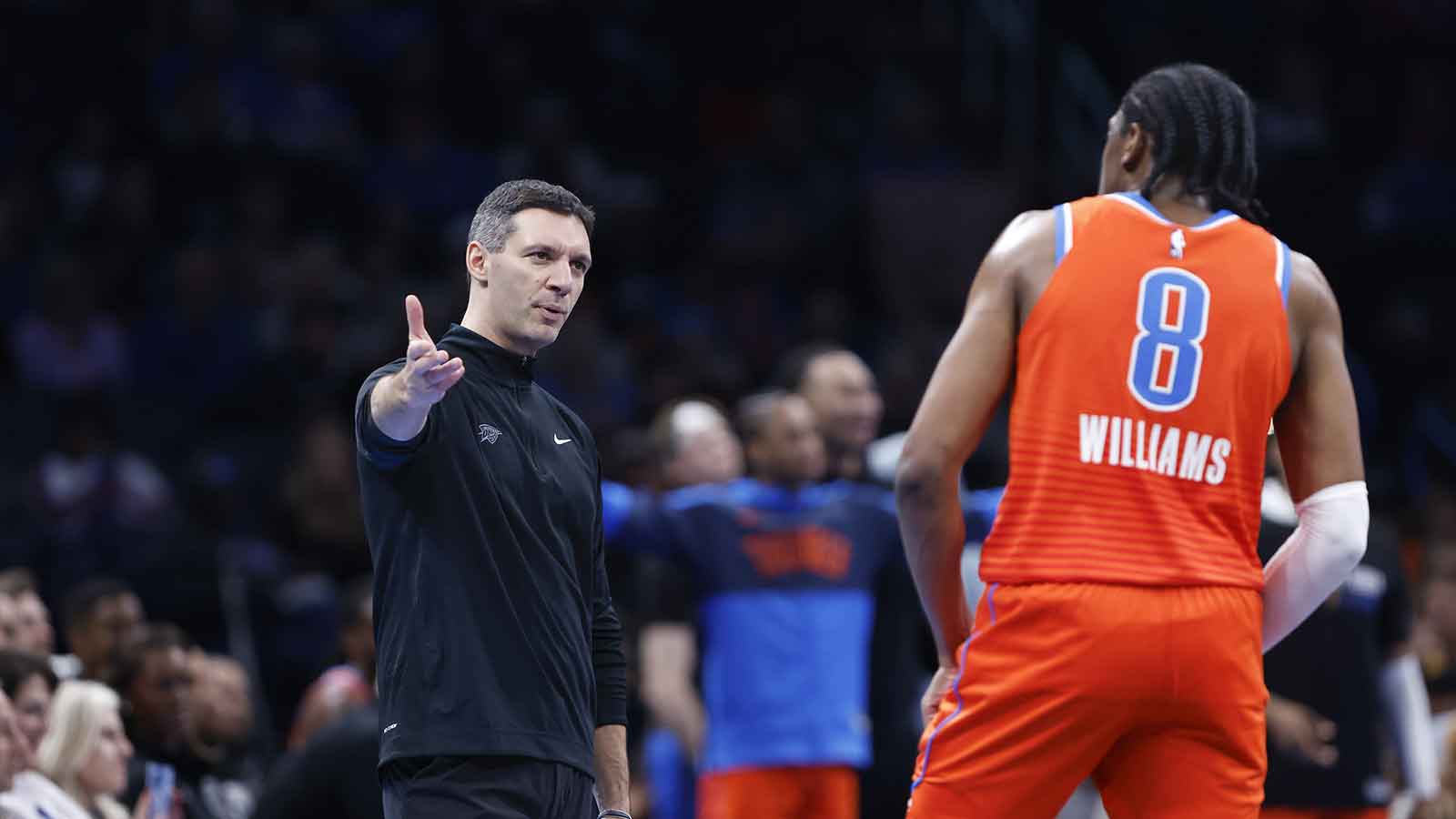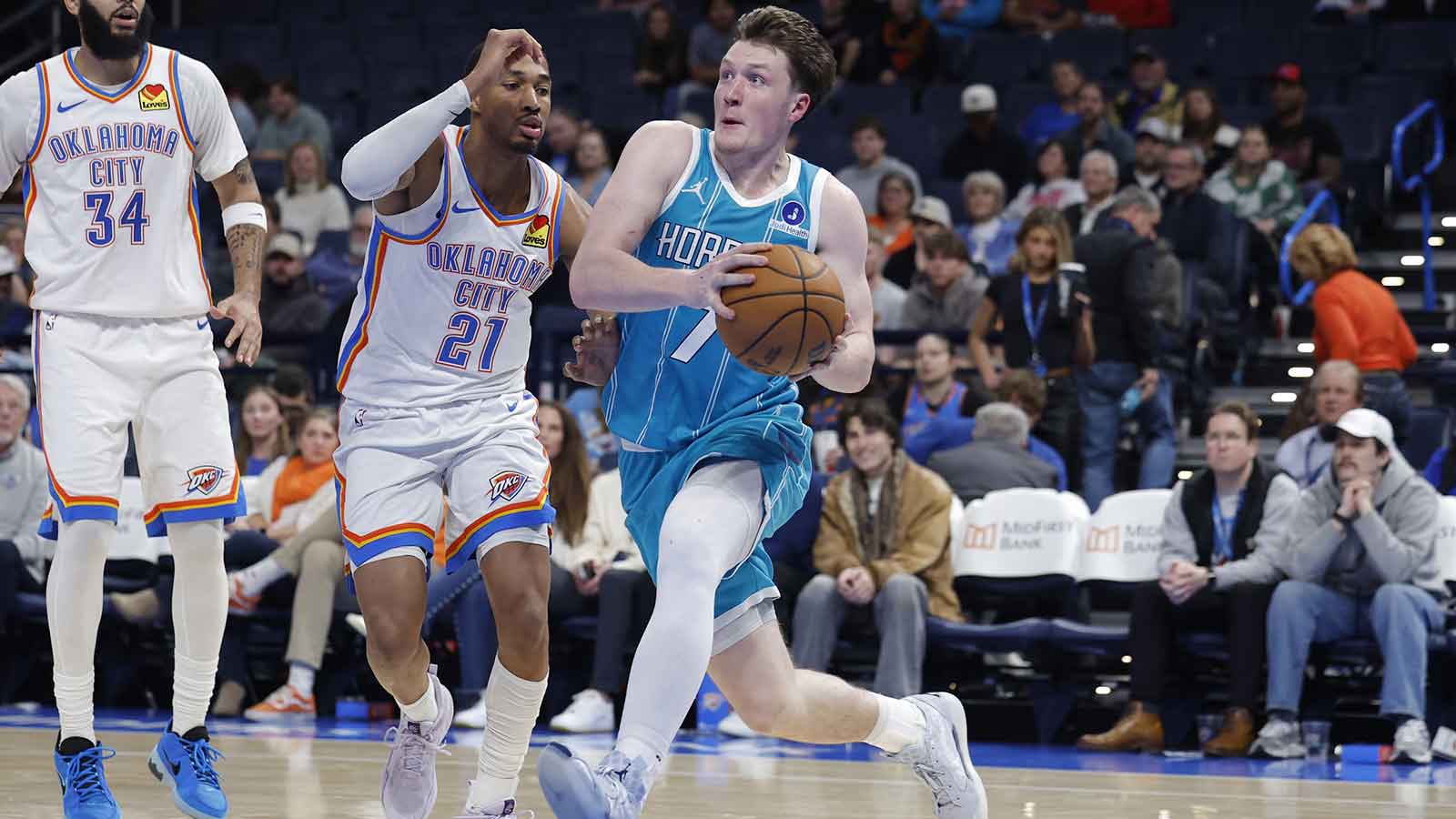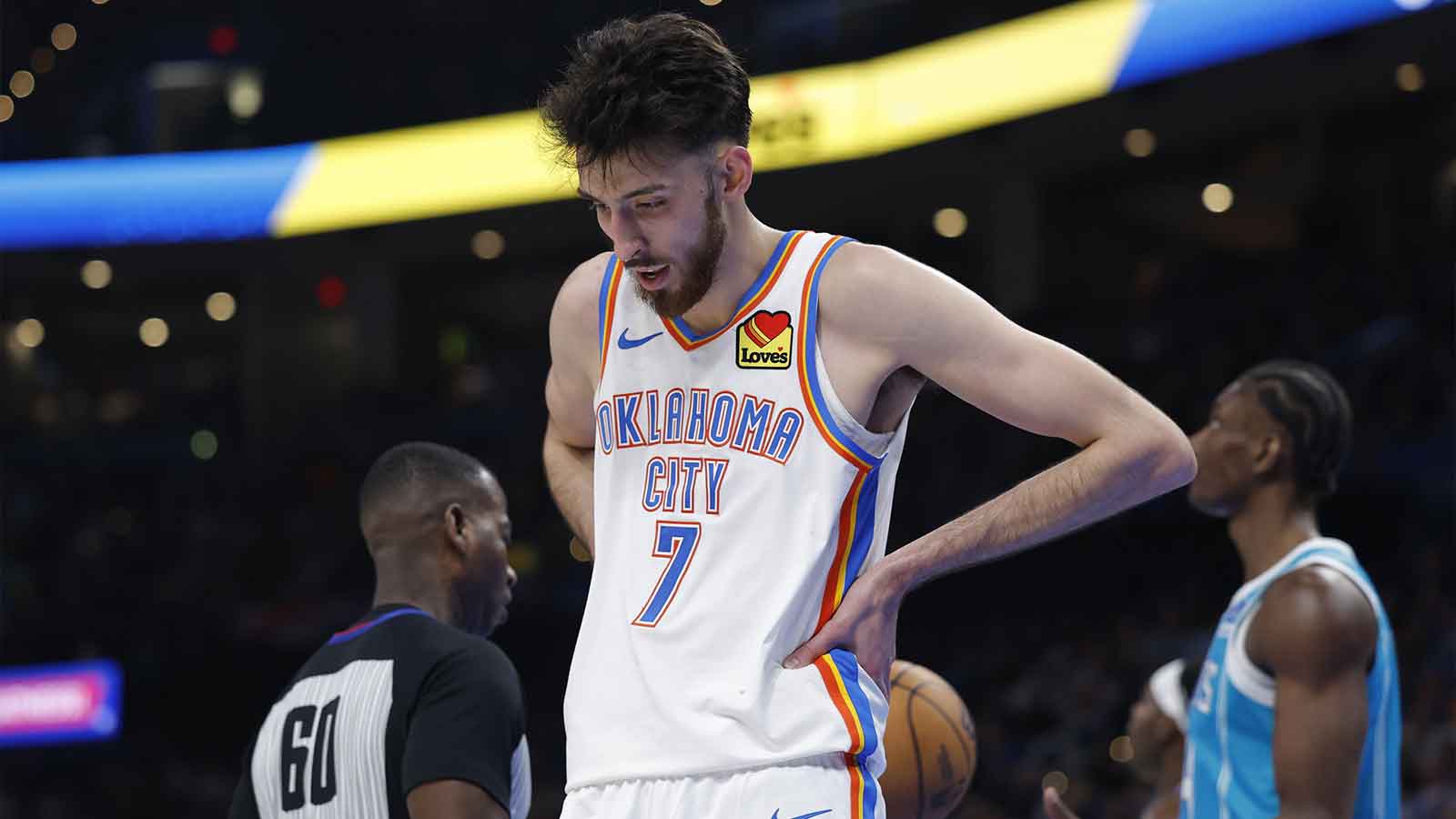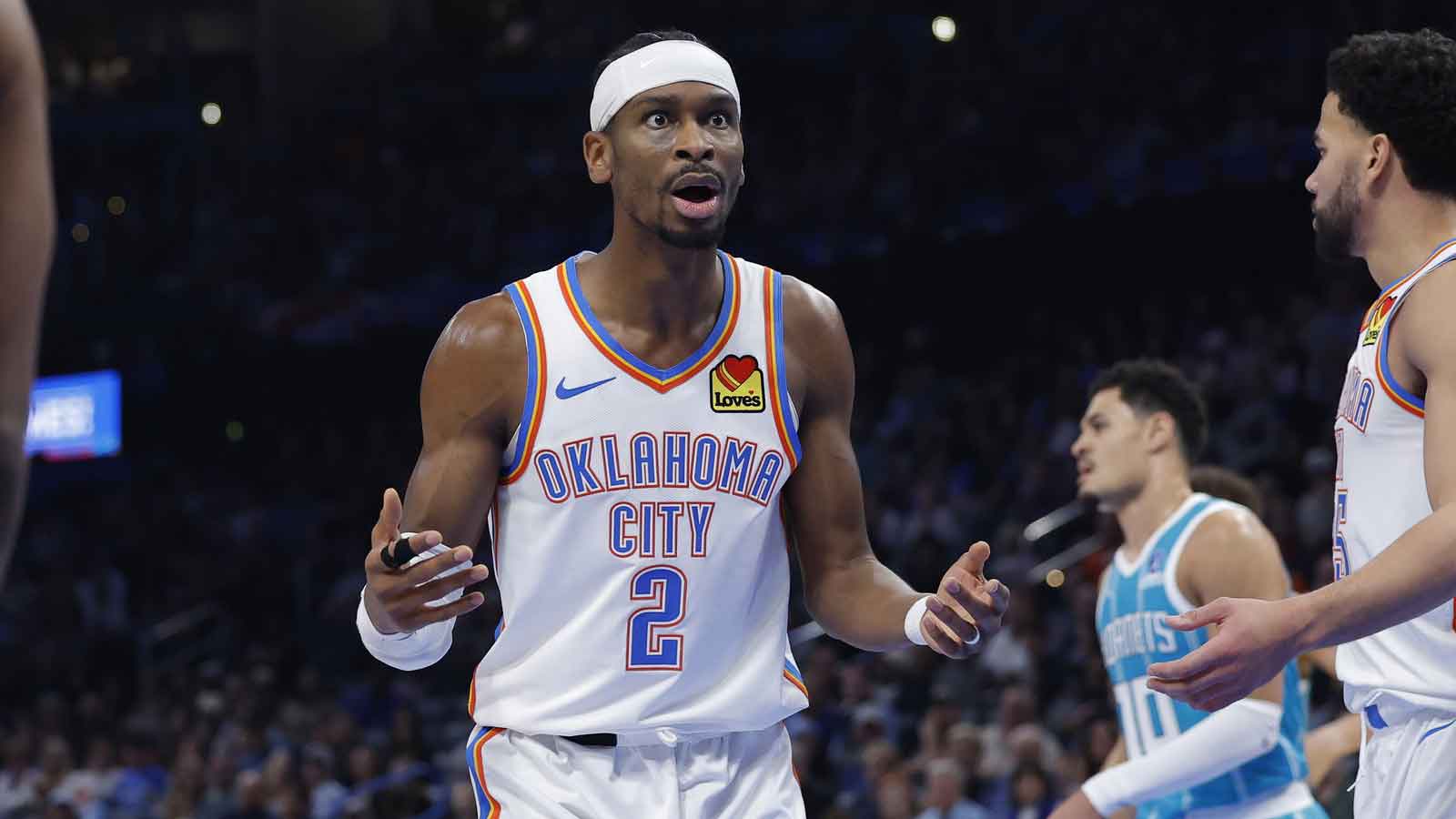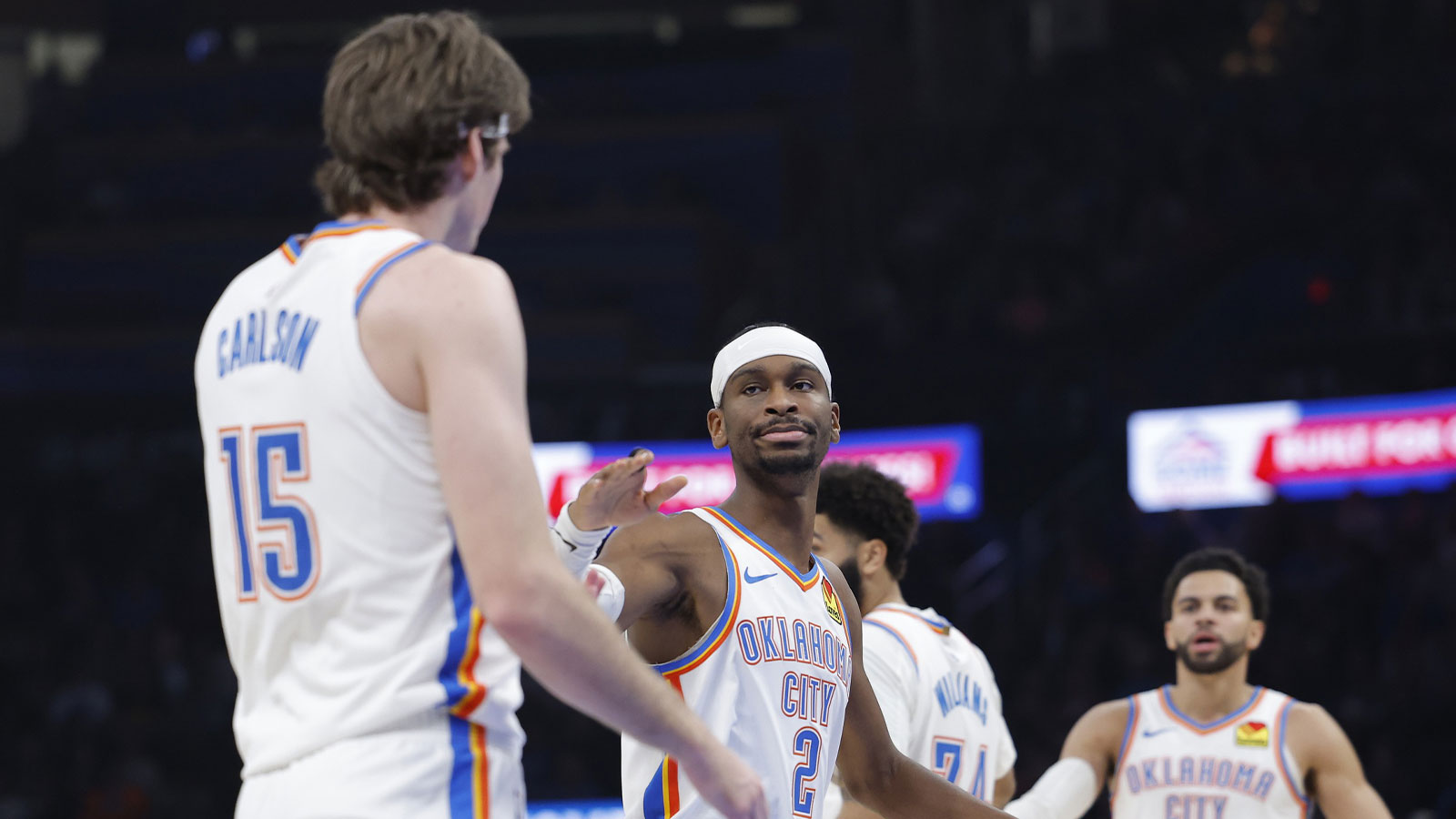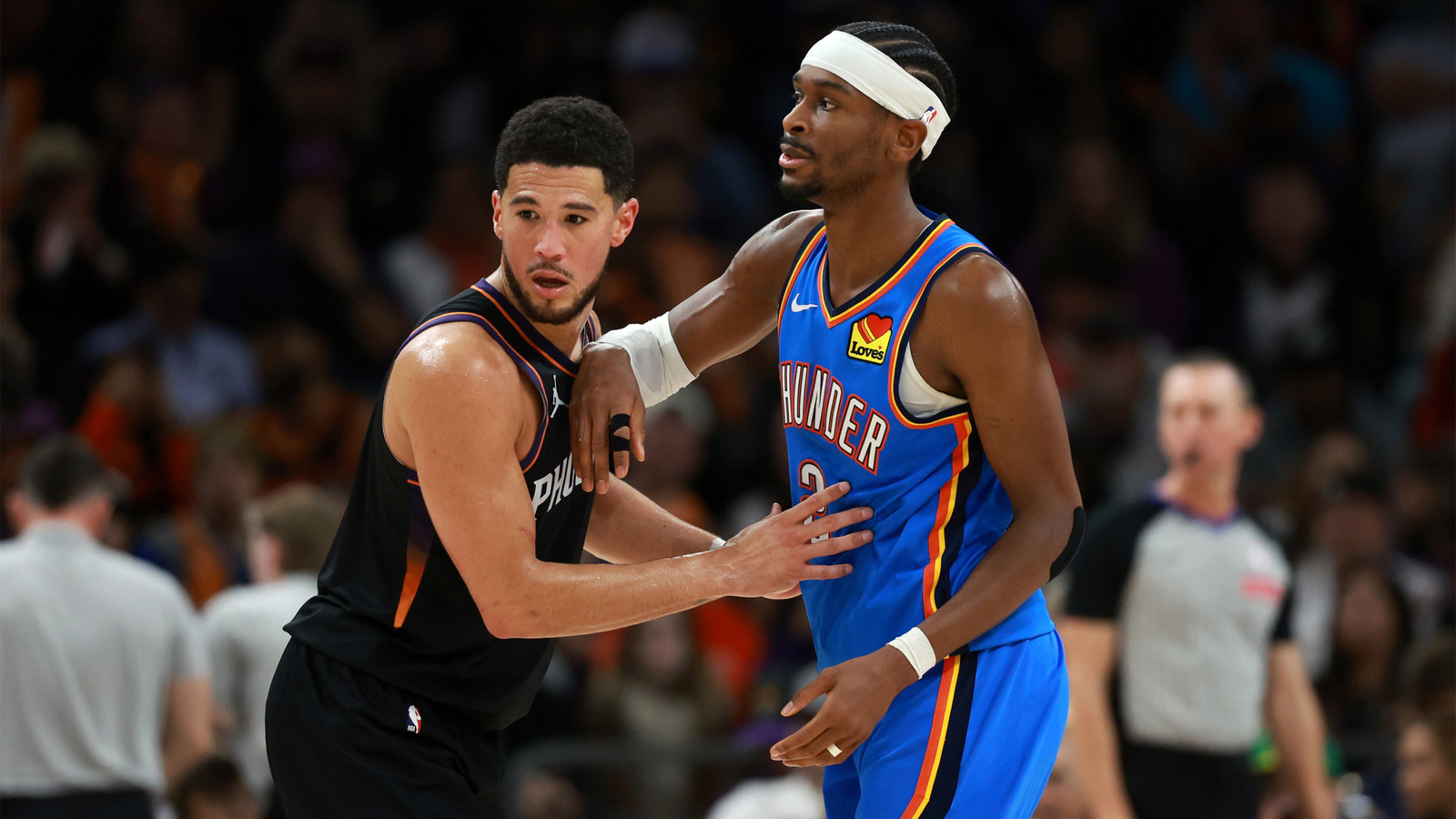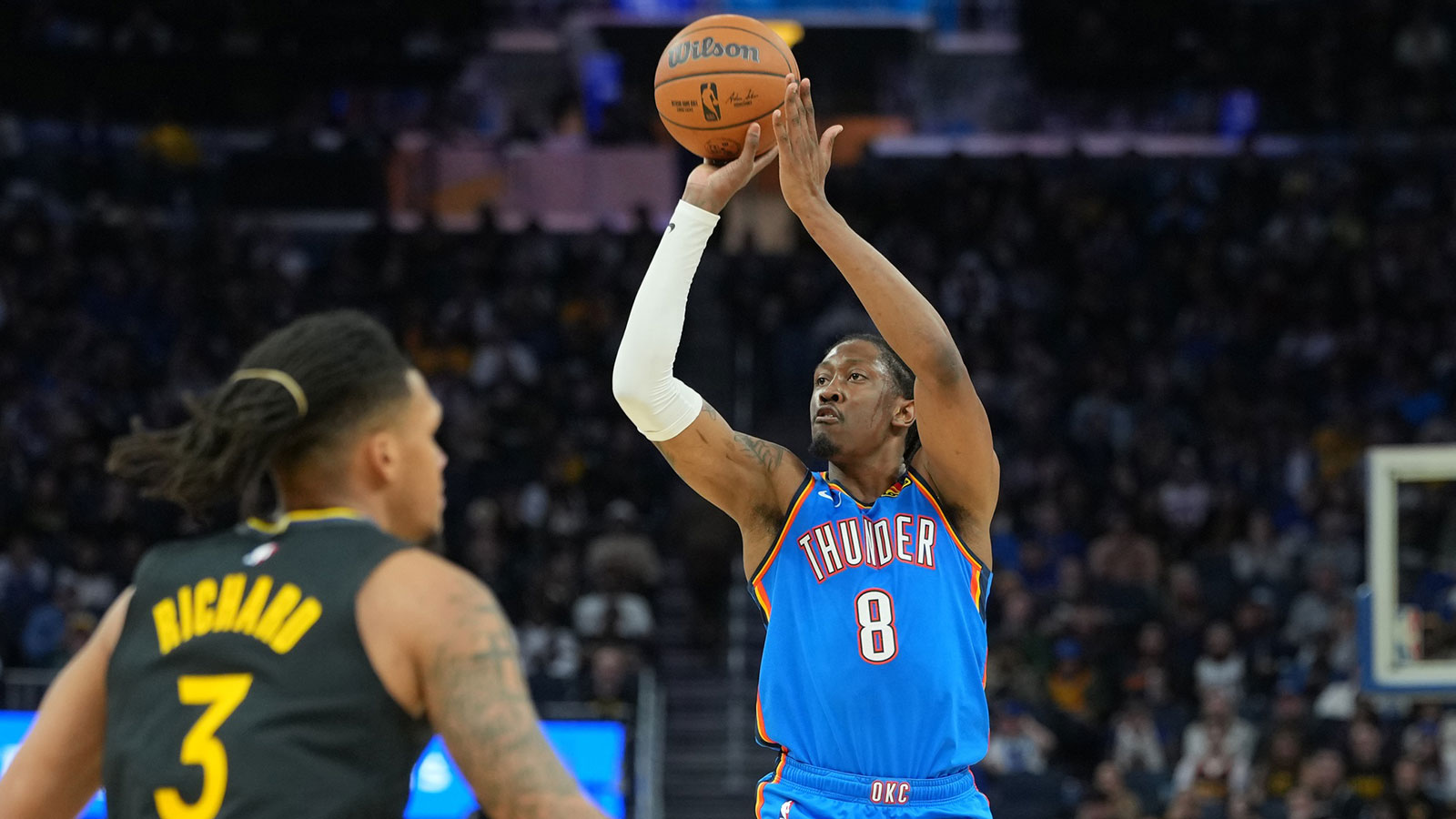The reigning MVP spent a laboriously uneven season telling anyone who’s listen that, despite all visual and analytical evidence otherwise, the Oklahoma City Thunder would be raring to go come playoff time.
“Me, personally, I love adversity,” Westbrook proclaimed after the Thunder’s February loss to the lowly Los Angeles Lakers–their fourth loss in a row. “We never flinch based on what's going on. We always stay together.”
But as disappointing loss after loss after loss mounted, the bravado of the dynamic point guard and his new running mates, Paul George and Carmelo Anthony, started ringing hollow. The trio of never seemed to really sync up and the season-ending injury to defensive wiz Andre Roberson unraveled Oklahoma City’s ace card.
Without Roberson, an airtight defense suddenly sprung leaks willy nilly and, after a tour de force 2016-2017 season, Westbrook’s encore was, in comparison, an uninspired dud. Despite overhauling the roster last summer to bring in two 2017 All Stars, the Thunder win total improved by one measly game.
A convincing playoff performance was supposed to wipe the the taste out of our collective memory. The Utah Jazz weren’t having it.
Utah absorbed the Thunder opening game salvo (and the world’s reintroduction to “Playoff P,” as George ripped off 36 points in a 116-108 Thunder win), then proceeded to dismantle the Thunder handily in three straight games.
Westbrook-Adams pick and rolls, Paul George curling off of a pindown, Carmelo isolation at the elbow, it didn’t matter what Thunder coach Billy Donovan ran, the Jazz chopped apart all of OKC’s actions with surgical five-man precision and choked off Westbrook driving lanes, rendering Oklahoma City’s speed and athleticism useless.
Utah’s defense was a buzzcut to the Thunder’s version of Samson. Through four games, Westbrook looked exceptionally mortal. After winning the MVP award through a combination of electric physicality, prodigious box score production, and top flight clutch performances, the Westbrook that was getting embarrassed by Ricky Rubio and rookie Donovan Mitchell seemed to be a shell of former self and the world was making sure he heard about it.
Last year’s heart-pounding run to Most Valuable Player kept even the most vociferous Westbrook detractors at bay. Russell Westbrook’s adrenaline soaked escapades were, for the most part, a feel good, post-Durant redemption story.
Fast forward to Game 5. New stars, same disappointing results. Victor Oladipo morphed into an All-Star the second he touched down in Indy, the Jazz blew out the Thunder in Games 3 and 4, and the emotional high of last season’s “Year of Westbrook” seemed like ancient history.
Through four games, Westbrook shot a pathetic 36 percent from the floor, coughed up five turnovers a game, and was routinely outplayed by the usually dependable but unspectacular Ricky Rubio. The Thunder teetered on the brink of elimination and Russell Westbrook was tagged as the reason why.
The rumbles started after the Thunder were throttled in Game 2 and by the time OKC trailed by 25 in Game 5, media pundits on social media had blades out, ready to cut Russell Westbrook's bonafides to ribbons.
OKC has quit.
Stop the fight.@utahjazz will be moving on the second round.— MichaelRapaport (@MichaelRapaport) April 26, 2018
Russ threw the season away to prove he was more alpha than Ricky freaking Rubio. In year 10. At age 30. THIS YOUR MVP?!
— Sam Esfandiari (@samesfandiari) April 26, 2018
OKC in fight-or-flight situation, Russell Westbrook and company look like they're excited about nice tropical vacation, rather than survival in playoffs.
— Ben Maller (@benmaller) April 26, 2018
Russ Westbrook 🚮
— Drew Beringer (@drewberinger) April 26, 2018
Russell Westbrook’s appeal is how he can compete using a baseball bat in a league of lightsabers. As offenses are streamlined to find any high efficiency edge and the three-point line has been weaponized, Westbrook continues gobble possessions by firing away with no conscience, hemorrhaging turnovers while crashing his way to the rim, leaving defenders bruised in his wake.
Make or miss, Westbrook’s trademark energy and aggression made him a cult hero who scowled and scored in bunches, efficiency be damned.
But when the misses mount and the fire sputters, Westbrook’s narrative devolves into that of a cranky overpaid chucker. Steve Francis with a Jordan deal.
The upper echelon in the league can perform feats that can rend even the rigid defensive schemes asunder, and in the NBA, sometimes pure talent can overwhelm the best laid plans of men. The warp speed of today’s media cycle means the masses can quickly forget what a player of Westbrook’s caliber is capable of.
In Game 5,Westbrook reminded the world of who he was.
Oklahoma City’s aggression set the stage for Westbrook’s late game heroics. All series long, the dual deterrent of Rudy Gobert and Derrick Favors set up shop in the restricted area and made life hell for Oklahoma City at the rim.
Game 5 saw both of the Jazz big men hampered with foul trouble (The two had combined for 12 blocks and just 19 fouls though the first four games; ending Game 5 with three total blocks and five fouls apiece) and Westbrook took full advantage.
Even after Gobert (11 points, 10 rebounds, two blocks) trudged to the bench with his fourth foul early in the second half, the Jazz route appeared on.
Less than a minute later, Jae Crowder banged in back-to-back threes to balloon the lead to 71-46.
But pride has power and, for all the Thunder bluster, finally the bite showed up to back the barking. Westbrook, shooting 21.6 percent from three in the series, drained one off of an Adams brush screen, then another moments later.
The switch was flipped. MVP Westbrook was back.
A rugged drive through Donovan Mitchell's chest. A tough pull-up from 19 feet. Another three. The floodgates opened and by the time Westbrook lasered in his fourth three of the quarter, it was 78-78 and the ‘Peake was chaos.
This was the Russell Westbrook who bullied his way into the discussion for top 5 NBA player over the last few seasons. Even when Gobert and Favors (10 points, five rebounds, four turnovers) returned to the floor in the fourth, it was too late to derail the Westbrook's freight train of confidence.
Westbrook ripped through Utah’s suddenly spongy defense for a dunk. He slalomed around screens to elevate for mid-range jumpers that were suddenly cash money. He bent the defense with blazing drives before finding Jerami Grant and Steven Adams for dunks.
The net barely moved as he drilled his final bucket over the flailing Gobert, pushing the Thunder lead to eight. Final score, 107-99. After scoring 37 points total in games 3 and 4, Westbrook went off for 45 points, 15 rebounds, and seven assists, single handedly out-scoring the Jazz 33-28 over the last 20 minutes.
Westbrook's onslaught had a cascading effect; the Thunder wrestled control of the pace on both sides of the ball and extended the pressure, forcing the Jazz’s metronomic offense grind to an inefficient halt.
Russell Westbrook’s resurgence awakened the Thunder defense, as well. The Jazz scored a robust 71 points through the the first 28 minutes of the game but scuffed out only 28 points in the final quarter and a half.
Donovan Mitchell (9-for-21, 23 points) and Ricky Rubio (10 points, 11 rebounds, 12 assists, 4-for-14 shooting) absolutely shredded the Thunder defense in the first four contests, combining for almost 46 points, 17 rebounds, and 11 assists per game.
Game 5 saw that magical streak end as the duo missed 23 of their 36 attempts to finish with 33 points total. If not for the heroics of Jae Crowder, this one may have turned into a route.
Oklahoma City’s 25-point comeback will go down as the third largest deficit ever overcome in the playoffs. Momentum may not carry over from game to game, but the Oklahoma City Thunder’s confidence will be brimming when they take the floor for Game 6.
The ball is still solidly in Utah’s court. They handled the Thunder convincingly and ralphing up a 25-point lead has got to feel more flukey than a trend. Gobert AND Favors probably don't get hamstrung with foul trouble again and the comforts of home will work wonders for the Jazz’s bruised ego.
For the Thunder, the satisfaction in their improbable win has to be tempered by the fact that, well, they WERE trailing the Jazz by 25 before the third quarter was over.
Expecting Westbrook and Paul George (34 points, eight rebounds, two steals, and a block) to drop 79 points isn't a sustainable model for success. George has been, up until Game 5, Oklahoma City’s best player in the series. But Playoff P needs to keep his motor at a high level.
The Thunder won’t survive if George reverts to his Games 2 through 4 form (George DID score 32 in game 4, but he shot only 31 percent from deep in those three contests). George and Billy Donovan have to find a way to short circuit Joe Ingles, his Jazz counterpart. Ingles isn’t just scoring more than usual (the 15.5 points per game he’s putting up in this series is a full four points higher than his season numbers), but he’s taking taking (7.8) and making threes at a ridiculous clip, draining 46.2 percent of his deep bombs.
Carmelo Anthony (seven points, 2-6 shooting) was, once again, a harmful presence on the floor. Anthony has more shots (65) than points (64) in the series, and the Jazz are gleefully hunting him out in pick and roll action to taking advantage of his somnolent defense. If he's not making shots or slowing Derrick Favors, coach Donovan can't be afraid to give him a quick hook.
The Thunder defense has to find a way to remain engaged for a full 24 seconds each possession. Utah is adept at scrambling the defense with constant motion, dribble handoffs, smart cuts from wings coupled with hard rolls by sure-handed bigs Gobert and Favors. Lapses in concentration have been OKC’s undoing numerous times, with 17 seconds of solid rotation being for naught as the Thunder brain lock, allowing wide open corner threes or an easy dunks out of the pick and roll.
Billy Donovan also has to wring production out of his bench rotation. If OKC is to have a prayer of winning this series, 18.8 points per game from the Grant-Abrines-Felton-Patterson group won't get it done.
But all of those other factors won't matter if the Westbrook the world saw in Game 5 doesn't show up for Game 6. It's not a stretch to say everything OKC does starts with Westbrook lancing perimeter defenses and applying constant pressure to keep rim protectors on their collective heels.
He'll never be a midrange savant but due to his speed, Westbrook has fashioned it into a verified weapon. He buried the Jazz under a barrage of pull-up jumpers and he'll have to keep sticking those at a high rate to keep the Thunder’s hopes alive.
Oklahoma City’s oddly disheartening season is behind them and a pivotal summer is ahead. Utah is still in control of the series, but losing Game 5 in such a monumental fashion ratchets up the pressure on Quin Snyder's crew, while imbuing the Thunder with a heavy dose of confidence.
The Thunder spent the season telling the world to just wait until the playoffs start. With their backs against the wall, Russell Westbrook has a chance to once again change the narrative around him in Game 6.



